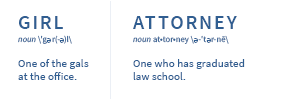From Forbes authored by Christina Vuleta:
“This month in honor of National Mentor Month, we’re sharing the stories of women who are creating new models of mentorship. Like the fast, fluid world we live in, mentorship today takes many shapes and sizes. Increasingly it is more about experience than it is about age. It’s about wisdom exchange with the goal of helping more women own their power and take their rightful place in the world. Gloria Feldt, cofounder of Take The Lead, an organization dedicated to achieving gender parity in leadership and pay by 2025 shared her story of a silent mentor who set her career in motion.
Mentee: Gloria Feldt, cofounder of Take The Lead, author of No Excuses: 9 Ways Women Can Change How We Think About Power, and former president and CEO of Planned Parenthood Federation of America
Mentor: Mildred Chaffin, Head Start
The oil patch of Odessa TX is not the garden spot of the world, not the place where you’d expect progressive programs to even exist. The woman who started the Head Start program there in the late 1960s was not your typical manager. She was a journalist. She was crabby and crusty. A lot of people couldn’t get along with her. Her name was Mildred Chaffin. She was my boss in my first full-time job, and she was my mentor though I didn’t realize it at the time.”
Read the full story by FOLLOWING THIS LINK
